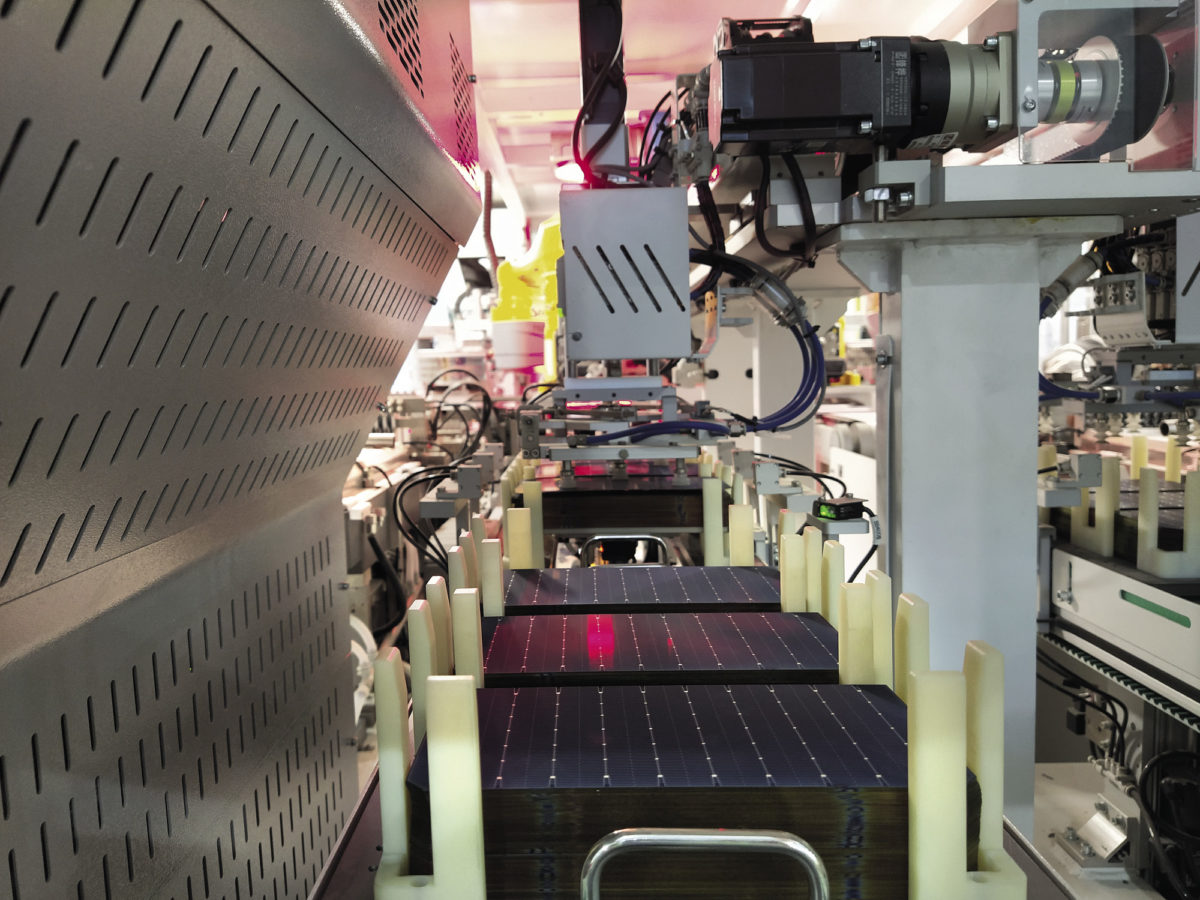The Solar Energy Corp. of India Ltd (SECI) has invited applications for incentives from solar manufacturers ready to set up gigawatt-scale manufacturing facilities for high-efficiency solar modules in India, under the second phase of the Production Linked Incentive (PLI) Scheme.
Manufacturers setting up any solar PV technology-based production facilities will be eligible to apply for the incentives, provided they commit to developing facilities that manufacture at least solar cells and modules and adhere to minimum manufacturing capacity requirements and minimum standards for module performance.
They can opt to bid under any of the three categories of integration: poly-to-module, ingot-wafers-to-module, and cells+modules. The total allocation of funds for each category is INR 12,000 crore, INR 4,500 crore, and INR 3,000 crore, respectively. Each manufacturer must submit a single bid to set up a manufacturing facility of a minimum 1 GW capacity (1 GW each for all individual stages included in its proposal).
“The maximum capacity that can be bid for, i.e., the manufacturing capacity that a bidder will set up under this RfS, will be 10 GW for the poly-to-module category and 6 GW each for wafer-to-module and cells+modules categories. However, the maximum capacity that will be awarded to a single bidder under the PLI scheme, i.e. the maximum capacity which will be eligible for a grant of PLI, will be 50% of the capacity to be set up by the bidder. This awarded maximum bid capacity will include any capacity awarded as per the Letter of Award issued by IREDA under Tranche-I of the PLI Scheme,” states the tender document.
This content is protected by copyright and may not be reused. If you want to cooperate with us and would like to reuse some of our content, please contact: editors@pv-magazine.com.









By submitting this form you agree to pv magazine using your data for the purposes of publishing your comment.
Your personal data will only be disclosed or otherwise transmitted to third parties for the purposes of spam filtering or if this is necessary for technical maintenance of the website. Any other transfer to third parties will not take place unless this is justified on the basis of applicable data protection regulations or if pv magazine is legally obliged to do so.
You may revoke this consent at any time with effect for the future, in which case your personal data will be deleted immediately. Otherwise, your data will be deleted if pv magazine has processed your request or the purpose of data storage is fulfilled.
Further information on data privacy can be found in our Data Protection Policy.